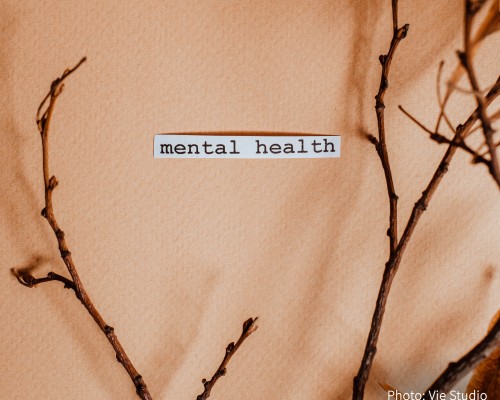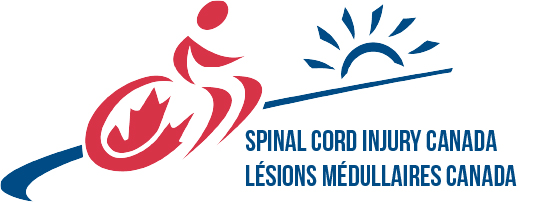Resources and Tips for Managing Your Mental Health

In today’s society, we are more plugged in than ever before. But the way we use our devices is not always good for our mental health [1]. Even so, most of us don’t want to give up using our devices. Therefore, I want to try to show you how you can use your smartphone or device to benefit your mental health [2]. In this blog, I would like to give you some tips and resources that have helped me and can hopefully help you too!
Apps
It may sound odd, but a few of the things that have helped me with stress and worry are apps that I have downloaded on my phone. However, I don’t recommend replacing mental health treatments, like therapy or medication, with apps on your phone. If you are experiencing severe mental health challenges, you should talk to your doctor.
That being said, when we need to calm down from a stressful day at school or work, or when we need to take a mental health day and reconnect with ourselves, the technologies that we have access to on our smartphones, tablets, and devices can be very helpful [2].
Getting Started
The app store on your device will have tons of great options to help you with your mental health, depending on your needs. I know that finding an app that you like and will use consistently can take a lot of trial and error. To help in your search, I recommend refining your browsing by topics, such as:
- Meditation
- Journaling
- Relaxation
I would like to give you a few app recommendations and explain why they might be helpful for you.
Disclaimer
I recognize that not everybody has access to a cellphone or internet connection due to systemic and financial barriers. Likewise, I have tried to choose apps that are accessible, and I have reached out to companies for confirmation that their apps have been designed with inclusion in mind. I encourage you to look out for more SCI Canada blogs to find other useful resources.
None of my recommendations in this blog are sponsored. I encourage you to be careful around in-app purchases to avoid signing up for paid features or subscriptions that you do not want to use.
Meditation
Many studies have been conducted to determine the benefits of meditation. It has been found that meditation may help with focus, decreasing stress, and managing emotions [3]. Meditation has also been shown to help with some physical health conditions such as poor sleep, heart disease, high blood pressure, and asthma [4]. Trying meditation may help you increase
your capacity to cope with stress and negativity. It can also increase your feelings of creativity and calmness [4].
For those looking to get into meditation, I recommend the app InsightTimer. This app is full of great content and most of it is free! There are over 140,000 free meditations on the app. You can search for meditations, talks, breathing exercises, sound effects, bedtime stories, and much more. It logs how much time you spend on the app so that you can track your meditation journey. You can bookmark, review, and follow instructors and their tracks. You can even create and save playlists. In addition, there is a regular timer and a sleep timer if you wish to manage your time spent on the app. It also has a very detailed filtering system in the menu so that you can find exactly what you want and weed out what you don’t like.
If you don’t have access to the app, you can also check out their meditations online on the InsightTimer website.
Journaling
Journaling can positively impact your mental health by helping you see patterns in your mood and behaviour. Journaling can also help you to identify triggers and provide you with an opportunity to reflect and express yourself [5]. Similar to meditation, journaling has been studied for its positive effects on the immune and respiratory systems [6]. Additionally, journaling may help us gain confidence [6].
For journaling, there are many great electronic options depending on what works for you! Most are quite similar, but I recommend Sanvello.
This app lets you keep track of your mood, make notes to yourself, set goals, and reflect on your day, your thoughts, and your behaviour. Sanvello has some educational exercises and courses available to help with things like anxiety, low mood, confidence, and relaxation. It also has a community feature if you wish to connect with others anonymously, though it is not required that you do. In addition, Sanvello has mood assessments that can suggest activities for you. Whether you use the app every day or once in a while, it can be a great way to check in with yourself.
Relaxation
For relaxation, my top picks are some that you probably already have. I suggest trying a podcast app and YouTube.
Chances are your phone or device came with a podcast app, but if it didn’t, there are many great apps available such as Spotify or Google Podcasts.
Podcasts are great because you can search for whatever interests you. However, if you’re looking for next-level relaxation, I suggest trying a sleep podcast. Some good ones are Get Sleepy, Nothing Much Happens, and Listen to Sleep. This genre of podcast is usually very calming and peaceful.
Another option is to find a podcast that is related to your interests. Try to find something that is positive, optimistic, and light-hearted. I find these can be very helpful to take your mind off stress, intrusive thoughts, worries, or environmental stimuli. YouTube can be used in a very similar way to a podcast app. Perhaps there are channels that you find particularly relaxing or that make you happy. I recommend watching these videos when you need a pick-me-up or when you need to wind down. Get Sleepy Podcast, as mentioned, has a YouTube channel where they post their tracks along with visuals. You may also enjoy watching tutorials, cooking videos, ASMR videos, or art time-lapses.
Podcasts, talk-through stories, and videos are helpful because they stimulate the brain [7]. This means that if you are watching or listening to something enjoyable, your brain will release “feel-good” hormones like endorphins [7]. Similarly, a calming video or podcast may help your brain relax and produce oxytocin, which has been studied for its potential to reduce stress and anxiety [7]. So, the effects of listening to podcasts or watching YouTube can be very helpful when you are having a bad day or a long day.
Conclusion
I hope you found some of these tips useful and that you will give some of these apps a try! Many of us spend a great deal of our day on our devices, however, if we are going to be scrolling, or surfing the web, we might as well be doing so in a way that is positive and beneficial!
References
[1] Wacks Y and Weinstein AM (2021) Excessive Smartphone Use Is Associated With Health Problems in Adolescents and Young Adults. Front. Psychiatry 12:669042. doi: 10.3389/fpsyt.2021.669042
[2]Chandrashekar, Pooja. “Do mental health mobile apps work: evidence and recommendations for designing high-efficacy mental health mobile apps.” mHealth vol. 4 6. 23 Mar. 2018, doi:10.21037/mhealth.2018.03.02
[3]Davis, D. M., & Hayes, J. A. (2012, July). What are the benefits of mindfulness? Monitor on Psychology, 43(7). https://www.apa.org/monitor/2012/07-08/ce-corner
[4]“Meditation: A Simple, Fast Way to Reduce Stress.” Mayo Clinic, 29 Apr. 2022, www.mayoclinic.org/tests-procedures/meditation/in-depth/meditation/art-20045858.
[5] Watson, L. Renee, et al. “Journaling for Mental Health.” Health Encyclopedia - University of Rochester Medical Center, www.urmc.rochester.edu/encyclopedia/content.aspx?ContentID=4552&ContentTypeID=1.
[6] Bailey, Kasee. “5 Powerful Health Benefits of Journaling.” Intermountainhealthcare.Org, 15 Nov. 2018, intermountainhealthcare.org/blogs/topics/live-well/2018/07/5-powerful-health-benefits-of-journaling.
[7] Malach, Hannah. “Why Listening to Podcasts Is Good for Your Brain.” Good Housekeeping, 2 Nov. 2021, www.goodhousekeeping.com/health/wellness/a34100126/podcast-brain-benefits.
